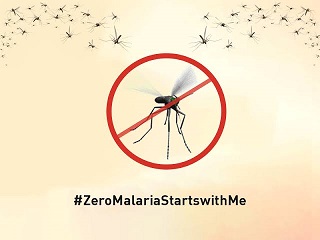Effective ways to prevent malaria: tips and strategies
Malaria is a serious and potentially fatal disease caused by a parasite that is transmitted through the bites of infected mosquitoes. It is a major public health concern, particularly in tropical and subtropical regions of the world, where the disease is most prevalent.

Malaria can have significant impacts on individuals and communities, including long-term health problems and economic hardship.
Best Practices for Staying Safe
One of the most effective ways to prevent mosquito bites and reduce the risk of malaria is to use insect repellent. When choosing an insect repellent, look for those containing DEET, which is the most effective and long-lasting repellent against mosquitoes. Apply the repellent to all exposed skin, including your face, and reapply it every few hours, especially if you are sweating or swimming.
Wearing protective clothing can also provide a physical barrier between your skin and mosquitoes. Choose long-sleeved shirts, long pants, and socks that are loose-fitting, light-colored, and made from breathable fabrics such as cotton. Avoid wearing dark-colored clothes, as they can attract mosquitoes.
Sleeping under a mosquito net can prevent mosquito bites while you are sleeping. Make sure the net is properly secured around the bed and tucked under the mattress to prevent mosquitoes from entering. If the net has any holes or tears, repair or replace it immediately.
Taking antimalarial medication is essential if you are traveling to a high-risk area. There are several different types of antimalarial medication available, and the type you need will depend on the specific area you are traveling to and your medical history. Consult your doctor or a travel health clinic for advice on the best type of medication for you.
Mosquitoes that transmit malaria are most active during dawn and dusk, so staying indoors during these times can significantly reduce your risk of being bitten. If you do need to be outside during these times, make sure you are wearing protective clothing and using insect repellent.
Eliminating any standing water around your accommodation can help reduce the mosquito population. Mosquitoes breed in standing water, so it is essential to empty and clean any containers that can hold water, such as buckets, flower vases, and birdbaths.
Summing up, malaria is a preventable disease, and taking the necessary precautions when traveling to high-risk areas can significantly reduce your risk of infection. Using insect repellent, wearing protective clothing, sleeping under a mosquito net, taking antimalarial medication, staying indoors during peak mosquito hours, and eliminating mosquito breeding sites are some of the most effective ways to prevent malaria. Consult your doctor or a travel health clinic for advice on the best prevention methods and medication for your specific needs. By taking these precautions, you can enjoy your trip and stay healthy.
